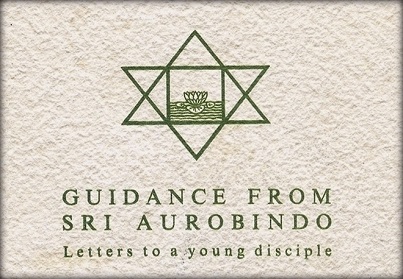
Does logic help us to observe, think, judge, imagine in the right intellectual way?
No, not necessarily. It is a theoretical training; you learn by it some rules of logical thinking. But the application depends on your own intelligence. In any sphere of knowledge or action a man may be a good theorist but a poor executant. A very good military theorist and critic if put in command of an army might very well lose all his battles, not being able to suit the theories rightly to the occasion. So a theoretical logician may bungle the problems of thought by want of insight, of quickness of mind or of plasticity in the use of his capacities. Besides, logic is not the whole of thinking; observation, intuition, sympathy, many-sidedness are more important.
When Dr. Sircar came to teach logic and philosophy to Shanti I found out that they are concerned with the mental things and have nothing much to do with the practice of Yoga.
Why should you expect the theory of logic to have anything to do with Yoga — it is concerned with mental reasoning, not with spiritual experience. Cooking also has nothing to do with Yoga; you can’t cut up Brahman and the Purusha and surrender and put them into the dishes either as a vegetable or a sauce. All the same, cooking is a part of existence, even of existence in an Ashram.
Can logic and philosophy help one in his sadhana?
They can help to prepare the mind or they can help to express the knowledge properly in the mental way. What else do you expect them to do?
I am not aware that by learning logic one gets freed from physical things. A few intellectuals lead the mental life and are indifferent to physical needs to a great extent, but there are very few.
Would a developed mind help the sadhana?
It may or may not — if it is too intellectually developed on certain rationalistic lines, it may hinder.
You wrote to N that though people call you a philosopher, you have never learnt philosophy. Well, what you have written in the “Arya” is so philosophical that the greatest philosopher in the world could never hope to write it. I don’t mean here the bringing down of the highest Truth, but the power of expression, the art of reasoning and arguing.
There is very little argument in my philosophy — the elaborate metaphysical reasoning full of abstract words with which the metaphysician tries to establish his conclusion is not there. What is there is a harmonising of the different parts of a many-sided knowledge so that all unites logically together. But it is not by force of logical argument that it is done, but by a clear vision of the relations and sequences of the knowledge.
In course of the sadhana, can one receive intellectual or other training by the direct power of Yoga? How did your own wide development come?
It came not by “training”, but by the spontaneous opening and widening and perfecting of the consciousness in the sadhana.
You say that you never developed your intellect. Then how did it become so keen and powerful before you started the Yoga?
It was not any such thing before I started the Yoga. I started the Yoga in 1904 and all my work except some poetry was done afterwards. Moreover my intellect was inborn and so far as it grew before the Yoga it was not by training but by a wide haphazard activity developing ideas from all things read, seen or experienced. That is not training, it is natural growth.
An unintellectual mind cannot bring down the Knowledge? What then about Ramakrishna? Do you mean to say that the majority of the sadhaks here who have not learned logic and are ignorant of philosophy will never get Knowledge?
But what a difference there is between Ramakrishna’s expressions of knowledge and those of a perfectly developed intellect like yours!
His expressions are unsurpassable in their quality. Don’t talk nonsense. Moreover I never developed my intellect and I made zero marks in logic.
And who preached Ramakrishna’s gospel to the world? Vivekananda, a highly developed intellect.
And who taught Vivekananda the Truth? Not a logician or highly developed intellect certainly?
Is there not a world of difference between an intellectual man and an unintellectual one expressing the Knowledge?
Expression is another matter, but Ramakrishna was an uneducated non-intellectual man, yet his expression of knowledge was so perfect that the biggest intellectuals bowed down before it.
I never heard that learning logic was necessary for good expression. So far as I know very few good writers ever bothered about learning that subject.



About Savitri | B1C3-11 Towards Unity with God (pp.31-33)